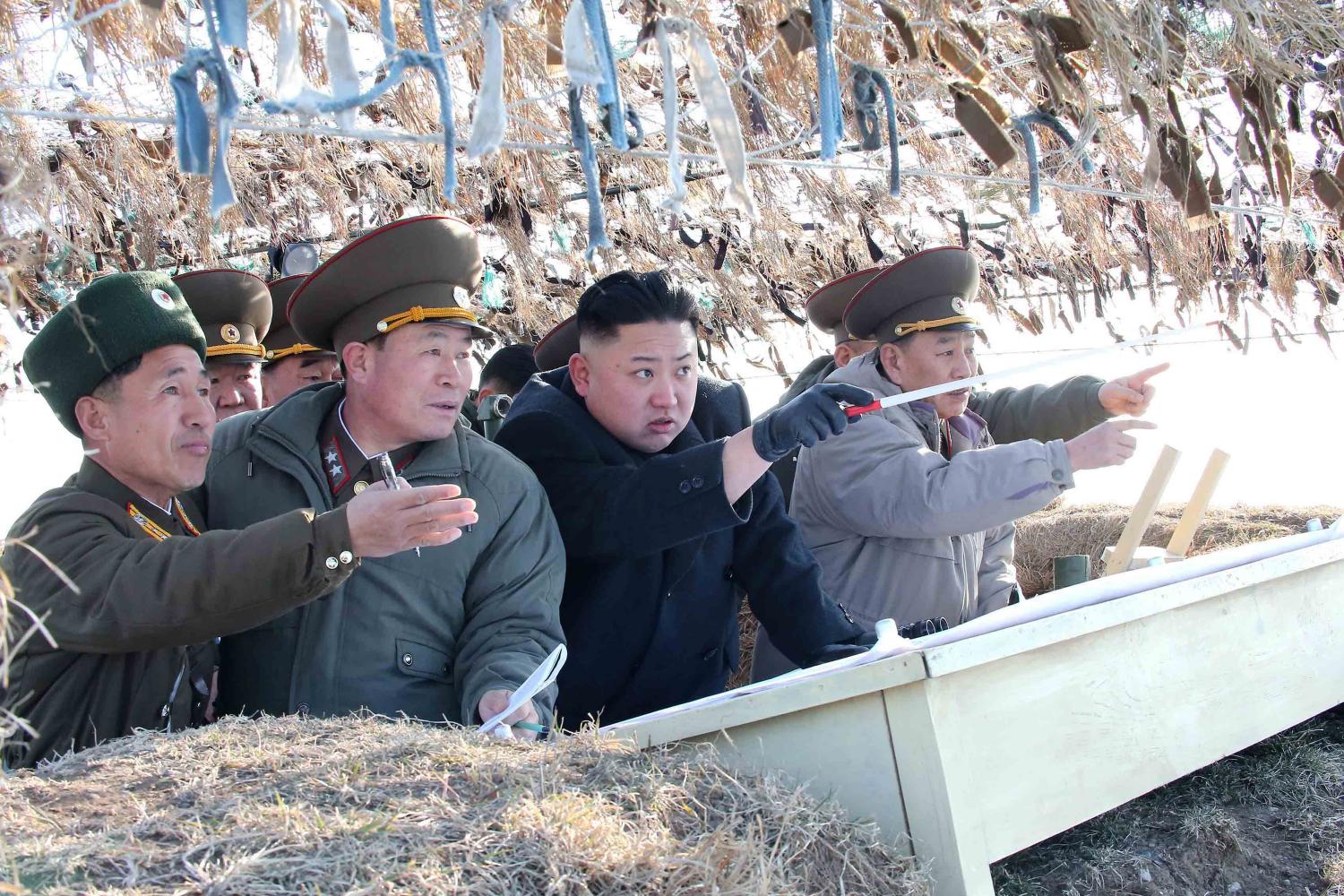The month of April had no shortage of terrifying headlines about North Korea, and unless you’ve been living under a rock, it’s been the biggest thing in international news.
In short, this is basically what happened last month: president Trump made a few tweets condemning North Korea in mid-April and also claimed to have sent the USS Carl Vinson strike group to the coast of the Korean peninsula. The latter turned out to be a “miscommunication,” although now it is believed that the strike group has in fact moved, just not when they said it did. North Korea made the usual threats in response, saying they won’t hesitate to retaliate if the U.S. attacked, and also conducted a nuclear missile test (that failed).
While last month’s series of events was notable and significant, it did not place the U.S. in any new position in regards to our relationship with North Korea.
Considering all provocations that have happened within the last 20 or so years between the two countries, last month was nothing more than the usual sensationalist headlines we hear from mainstream media time after time about North Korea.
Make no mistake, North Korea means serious business, however, most who follow news reports about them tend to miss one very significant factor- they say they will strike, but only if provoked. David Kang, the director of the USC Korean Studies Institute, made this exact point while on the podcast “On The Media” in late March. Kang said, “I think the biggest crucial thing that we keep missing is that North Korea’s threats are almost always couched in defensive terms. It’s not ‘we will attack you out of the blue,’ it’s ‘if you attack us first, we will take you down with us,’ and they’re pretty consistent, they say it pretty clearly. And the media tend to overlook that first part of the commentary from North Korea.” The remaining factors that play a part in our rising tension, according to Kang, is that the U.S. will do things to provoke these responses. Most recently was when secretary of state Rex Tillerson visited South Korea and said “All options are on the table,” in reference to North Korea. “Once we get past all the rhetoric, both sides believe each other,” Kang said.
Ok, so they’ll only attack if provoked, but what if something happens and they actually attack?
This has actually happened before, believe it or not. In November of 2009, The New York Times reported that a “two-minute skirmish” between North and South Korean naval vessels resulted in a North Korean ship going up in ablaze. Cause for the incident was cited as a territorial dispute off the western coast of the peninsula. The number of North Koreans killed was one according to Reuters, however other sources say that number is unconfirmed. Kang said that the North Korean’s response to their neighbors was, “You will pay a dear price,”. Just four months later, BBC reports came out that a South Korean navy ship was sunk by a North Korean torpedo, killing 46 sailors. The occurrence of both incidents resulted in deaths from both sides, however, it did not start a war. Keep in mind that North Korea was already conducting long range rocket tests by this time, also according to the BBC.
You’re just a college student, how would you have any clue what it’s really like over there?
Yeah, I’m a twentysomething college student, true, but I have actually been to North Korea as a tourist as recently as November. You wanna know something? It’s really not as scary as the media portrays it to be. Don’t get me wrong, I would never live there if somehow given the chance, but I found the North Korean people (not their government) to be very pleasant, they were delighted to see an American in their country. I even visited the DMZ on what was considered a more normal day, without the press being there, and was shocked by just how calm and quiet everything was. I of course saw poverty and tons of government propaganda condemning Americans but I also had zero negative interactions with the North Koreans.

There is also one more reason you should not be worried about the North Korea situation, which is that the South Koreans are not as afraid as we are of getting into war. If that is true then why should we be? North Korean missiles currently do not have the capability to reach the U.S., although they do have the means of reaching their neighbors to the south.
But don’t just take my word for it, Kang said the same thing and so have others with extensive knowledge on the hermit kingdom. In an interview just two weeks ago with New York Magazine, Jean Lee, an American journalist living in Seoul, was asked how seriously South Koreans take the threats that emerge from the north. She said, “I think you’d be surprised if you were to see the headlines and watch cable TV here in South Korea during the same period, because there was very little coverage of the rhetoric from North Korea. This peninsula has been in a state of war for 67 years, so the rhetoric is nothing new. It happens every spring. If you’re coming to the story for the first time, it sounds really dramatic.”


